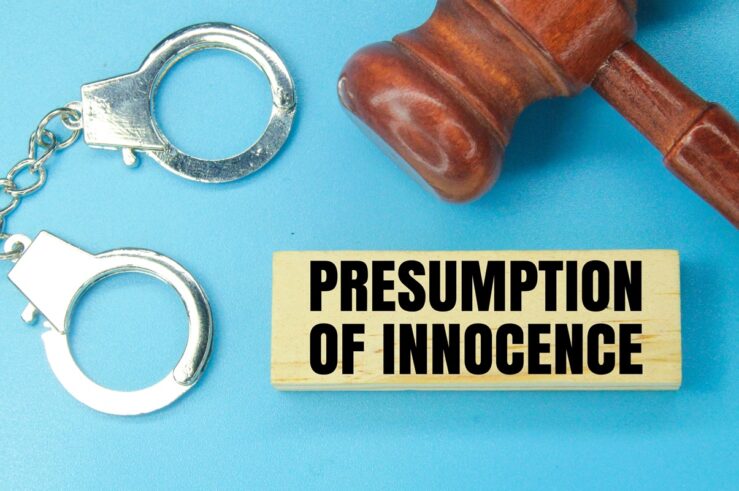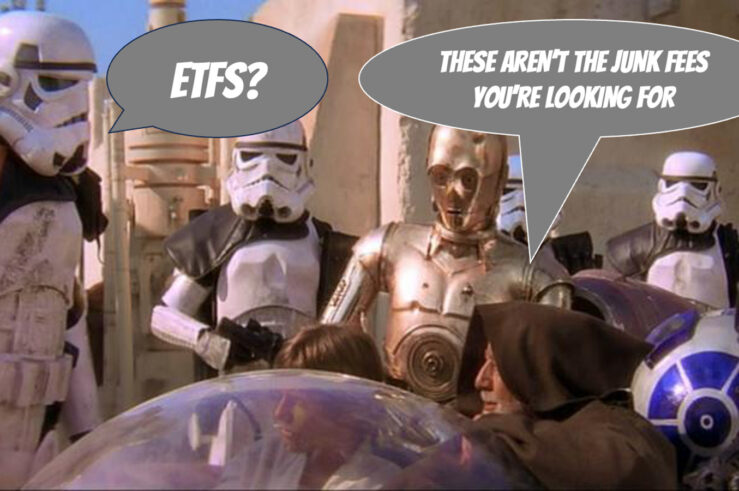Showing results for: “price gouging”
The DMA’s Missing Presumption of Innocence
The EU’s Digital Markets Act (DMA) will come into effect March 7, forcing a handful of digital platforms to change their market conduct in some unprecedented ways. The law effectively judges them guilty (with a very limited, formalistic trial), and brands them “gatekeepers” based purely on size. It then sentences them to far-reaching, one-size-fits-all antitrust-style ... The DMA’s Missing Presumption of Innocence
Will the FTC Scupper the Kroger/Albersons Merger?
The press is abuzz with news about the Federal Trade Commission’s (FTC) Feb. 26 announcement that it would challenge the proposed Kroger/Albertsons mega-supermarket merger, which had been in the works since the fall of 2022. If the FTC succeeds in obtaining a temporary restraining order and preliminary injunction in Oregon federal district court (a big ... Will the FTC Scupper the Kroger/Albersons Merger?
FCC’s Digital-Discrimination Rules: An Open Invitation to Flood the Field with Schlock
A half-dozen lawsuits have been filed to date challenging the digital-discrimination rules recently approved by the Federal Communications Commission (FCC). These cases were consolidated earlier this month and will now be heard by the 8th U.S. Circuit Court of Appeals. This has the hallmarks of a significant case that will almost certainly involve the U.S. ... FCC’s Digital-Discrimination Rules: An Open Invitation to Flood the Field with Schlock
From Europe, with Love: Lessons in Regulatory Humility Following the DMA Implementation
The European Union’s implementation of the Digital Markets Act (DMA), whose stated goal is to bring more “fairness” and “contestability” to digital markets, could offer some important regulatory lessons to those countries around the world that have been rushing to emulate the Old Continent. The first regards “regulatory humility.” Designing ex ante regulation to promote ... From Europe, with Love: Lessons in Regulatory Humility Following the DMA Implementation
Whose Failure Is the Failed Amazon/iRobot Merger?
The European Commission told Amazon in November 2023 of its preliminary view that the company’s proposed acquisition of iRobot restricted competition in the market for robot vacuum cleaners (RVCs) and could hamper rival RVC suppliers’ ability to compete effectively. The deal, the Commission asserted, would give Amazon incentive to foreclose iRobot’s competitors by engaging in ... Whose Failure Is the Failed Amazon/iRobot Merger?
March-Right-on-In Rights?
The National Institute for Standards and Technology (NIST) published a request for information (RFI) in December 2023 on its “Draft Interagency Guidance Framework for Considering the Exercise of March-In Rights.” It’s quite something, if not in a good way. March-In Rights Provide Very Limited Exceptions to Intellectual-Property Rights What are “march-in” rights? In brief, they ... March-Right-on-In Rights?
ICLE’s Amicus Briefs on the Future of Online Speech
Over the past few months, we at the International Center for Law & Economics (ICLE) have endeavored to bring the law & economics methodology to the forefront of several major public controversies surrounding online speech. To date, ICLE has engaged these issues by filing two amicus briefs before the U.S. Supreme Court, and another in ... ICLE’s Amicus Briefs on the Future of Online Speech
Using Bayh-Dole March-in to Set Patent Price Controls: An Assault on American Innovation
Under the Bayh-Dole Act, the federal government has the right to “march in” on patents on inventions created using taxpayer funds—to require the patentholder to license the federally funded patent to other applicants. The terms of the license must be “reasonable under the circumstances.” The act limits the exercise of march-in to specific circumstances related ... Using Bayh-Dole March-in to Set Patent Price Controls: An Assault on American Innovation
The FTC’s Misguided Campaign to Expand Bayh-Dole ‘March-In’ Rights
The Federal Trade Commission (FTC) has now gone on record in comments to the National Institute of Standards and Technology (NIST) that it supports expanded “march-in rights” under the Bayh-Dole Act (Act). But if NIST takes the FTC’s (unexpected, but ultimately unsurprising) contribution seriously, such an expansion could lead to overregulation that would ultimately hurt ... The FTC’s Misguided Campaign to Expand Bayh-Dole ‘March-In’ Rights
Are Early-Termination Fees ‘Junk’ Fees?
Cable and satellite companies often get a bad rap for early termination fees (ETFs). Consumer advocates portray them as “junk fees” or billing traps meant to cheat customers. And the Federal Communications Commission (FCC) appears to accept these allegations at face value, characterizing ETFs as “junk fee billing practices … that penalize subscribers for terminating ... Are Early-Termination Fees ‘Junk’ Fees?
The Curious Case of the Missing Data Caps Investigation
In an announcement that was treated to mild fanfare (meaning it was reported by certain tech blogs, but largely ignored elsewhere), Federal Communications Commission (FCC) Chair Jessica Rosenworcel asked her fellow commissioners in June 2023 to support a formal notice of inquiry (NOI) to learn more about how broadband providers use data caps on consumer ... The Curious Case of the Missing Data Caps Investigation
How the FTC’s Amazon Case Gerrymanders Relevant Markets and Obscures Competitive Processes
As Greg Werden has noted, the process of defining the relevant market in an antitrust case doesn’t just finger which part of the economy is allegedly affected by the challenged conduct, but it also “identifies the competitive process alleged to be harmed.” Unsurprisingly, plaintiffs in such proceedings (most commonly, antitrust enforcers) often seek to set ... How the FTC’s Amazon Case Gerrymanders Relevant Markets and Obscures Competitive Processes
















